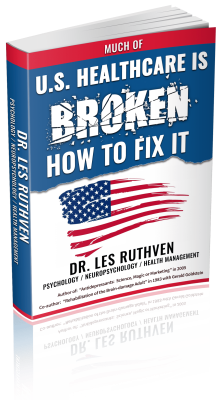Last updated on January 6th, 2024 at 08:34 am
Should general physicians be restricted from the sole treatment of certain health problems?
I know I will be accused of blasphemy but there is so much poor and costly healthcare (from my clinical experience and an extensive review of the health literature) that we have to insure that the health provider (physician or non-physician health provider) is trained and qualified to competently treat certain health problems for which the average physician may or may not have the necessary expertise to treat the specific health problem. As an example from a list of specific health problems I will discuss the treatment of a patient with Alzheimer’s Disease (AZ). Certainly the average physician is well qualified to treat the non-AZ health problems of these patients but AZ is such a complex brain disease that requires expertise I believe beyond that of the average Primary Care Physician (PCP). Let’s review the following case in which the patient’s physician asked “Are Dementia Drugs Serving This Patient Well?
The patient is a 78-year-old man with a 4 year diagnosis of Alzheimer’s Disease (AZ). His high blood pressure is well controlled with medication. He was treated with an AZ drug, which is said to slow down the dementing process, at the time of his diagnosis and a second AZ drug 2.5 years ago when the dementing process grew worse. The patient has forgetfulness and difficulty following simple instructions, knows the names of 2 of his 3 children, bathes himself but is not able to cook or do household chores or drive a car. He does not wander off but sleeps 4 hours a night and sleeps and watches television during the day. His wife, 77 years of age, is his primary caregiver. Two months ago the patient was prescribed an antidepressant drug for depression because of reduced appetite and an angry mood, which the patient blames on his wife for keeping him inside the house.
The doctor asks “What is the best course of action” for this patient. The doctor offers the following: continue his current medications, attempt to taper off the antidepressant drug alone, taper off the first AZ drug, taper off the second AZ drug, or taper off all drugs except the BP drug? The following are my recommendations.
As a clinical psychologist and having specialized clinical neuropsychology later in my career I would first ask “Is the patient’s cognitive impairment on the basis of his AZ alone or how much of the impairment is due to the brain impairing effects of his medications? I would first give the patient a screening test for cognitive impairment such as the computer delivered Ruthven Impairment Assessment (RIA) or some other brief neuropsychological testing to obtain a cognitive impairment baseline (pick a time of day for pre and post testing). Second, I would keep the patient on the BP medication but taper the patient off the other drugs since I know the antidepressant is cognitively impairing and I suspect the AZ drugs are also impairing. After tapering we would then know what the patient is like in his behavior/adjustment with his AZ alone plus his BP medication. We would then repeat the RIA or other neuropsych testing for the objective measure of his cognitive skills and also observe his current ability to master daily life demands.
To conduct a brief “pilot” study one could do pre and post testing on this AZ patient following tapering of the antidepressant drug, then tapering one of the AZ drugs and then the other AZ drug to determine any differential impairing effects of the three medications. One would think that the FDA in approving AZ drugs would insist that the maker determine that the drug to slow down the dementing process of AZ does not have brain impairing effects of the drug itself! Clinical neuropsychology is the only field that could (and should) look into the brain/cognitively impairing effects of dozens of prescription drugs but thus far it had not done so.
This case is an example of a much wider problem I have found with much of healthcare today and that is when the patient is not doing well the typical physician response is to change the medication (perhaps add a new drug) or in the above AZ case to take the patient off one or more medications. As a psychologist I know that for many diseases and non-disease health problems there are a number of non-drug solutions to address health problems that are responsive to changing the patient’s behavior! The doctor in the above AZ case seems to focus only on the medications (as in many other health problems) but let us see if there are non-drug solutions to address some of the patient’s health problems and improve the patient’s quality of life and perhaps some of the emotional consequences of the patient’s AZ.
What about the need for manipulating the patient’s environment for improved health and quality of life?
First of all whether the patient has AZ or not his daily life is composed of sleeping and watching television which is far from rewarding and major changes in his daily “activities” are needed. The patient has serious dementia which among other factors means that the patient has a limited ability to learn anything new. He is of course sleeping only 4 hours a night because he is sleeping four or more hours a day because of his completely sedentary life during the day (sleeping and watching television). To begin with the focus should be on keeping him active during the day; if we can accomplish this the patient will increase his sleeping time during the night, which will probably also help the wife’s health and well-being. Without knowing more about the patient’s degree or mental impairment I don’t know if one can arrange daily activities at home to keep the patient awake during the day or if some type of day program would be needed. From the description of the patient he seems not to be a major adjustment problem and he might work out in a Goodwill sheltered work shop doing low level productive work. There is a saying in neuropsychology about the brain which is “Use it or lose it” and the patient’s present life is doing nothing to preserve any of his remaining brain power. To arrange a more fulfilling menu of brain enhancing activities we would have to find out more about the patient’s past life and what were pleasurable activities. He mentions wanting to go outside the house and is he expressing a real interest or is the patient just bored with his life during the day?
I mention the non-drug solutions in this case of dementia but this is just one of many examples in healthcare in which there are non-drug and behavior solutions to many serious health problems. One timely and egregious example is the treatment of chronic pain with drugs (especially opioids) alone when we know that chronic pain is much more than injury to nerve endings. The CDC, for example, does not recommend opioids alone for chronic pain and the treatment for chronic pain requires knowledge and expertise beyond the skills of the average physician. There are major psychological and psycho social factors involved in pain and particularly chronic pain that must be treated for the best outcome. If the reader disagrees how are good hypnotic subjects able to undergo thoracic surgery without any drugs at all?
In the history of medicine healers and physicians at one time treated any and all health problems that came in the door but I believe it is well past time to restrict physicians to treat health problems that are well within their training and expertise but not to be the sole provider in treating specific health problems that require the expertise of other health professionals, an example being the sole drug treatment of the full range of the behavioral health disorders.



